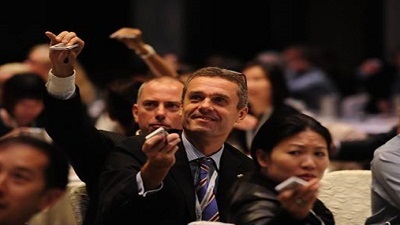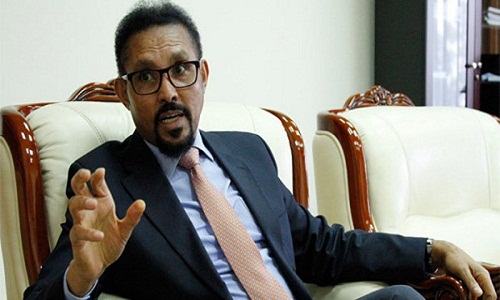"The opening session of the 11th Prime Source Forum 2016, Hong Kong that started today and is on till March 15, focused on sustainability as a practical and realistic approach going beyond just a cosmetic or marketing activity. Prime Source Forum, the two day event in its current edition, has been addressing sustainability concerns all these years. However, this edition deeply stresses on practical approach and solutions."

The opening session of the 11th Prime Source Forum 2016, Hong Kong that started today and is on till March 15, focused on sustainability as a practical and realistic approach going beyond just a cosmetic or marketing activity. Prime Source Forum, the two day event in its current edition, has been addressing sustainability concerns all these years. However, this edition deeply stresses on practical approach and solutions.

In the keynote address ‘Implications for a sustainable development of the fashion world following the G7 and COP21,’ Tino Zeiske, SVP, Corporate Responsibility, Metro AG said post G7 summit last year in Germany, where global leaders came together as a community of social responsibility and resolved to the statement that ‘we are here to shape future together’, later in September 2015 in the US the forum came with 17 sustainable development goals and in December at Paris COP21, a 190 member committed a target of lowering of 20 of temperature.
The outcome of these forums indicated, though there’s a higher aspiration on all such concerns but action is lagging. He added business must act as new activists and find business opportunities in these. Talking about carbon emissions, Zeiske said, “Yes we are all committed on ‘S’ word as an agenda but still global carbon emission levels are going up, from a 4,500 per capita level earlier, emission level today is at 5,000.”
Zeiske emphasised, “Global inequality is another concern, in spite of progress in developing world the gap between rich economies and poor countries is only widening further. Two hundred years ago, it was three times that of poorer countries, increased to 35 times fifty years ago and today the rich countries are 80 times richer than the poor countries. This imbalance is creating tensions that businesses cannot afford to face.”
He indicated that there are five significant implications to the scenario. The first one is low carbon approach, where dramatic regulatory changes in key markets are going to be there. Most governments will have to come with regulations like Germany already has regulations in textiles. “17 Sustainable Development Regulations by 2030 may sound like a threat, but it is also a business opportunity. Companies need to make it as a strategic move. Targets have to be set, soft policies and goals don’t hold true,” he emphasised.
According to him, the second implication is to understand that it is critical to do the calculations, because of the climate catastrophe, because of terrorism etc.; there can be a lot of disruptions in supply chain that needs to be accounted for. Consumer engagement in their hearts and minds is the third important implication of sustainable developments, as there cannot be any progress unless we engage consumer. It is the industry’s job to make it look more glamorous and making sustainability as the marketing case.
Innovation in digital technology is the fourth important implication. Technology so far is proactively being applied at the front. The need is to take it to the back end level, engaging right at farmer level and that could be a great game changer. For example, Metro in India has gone to the farmers and is creating collection centers to minimise waste, the farmers are asked to drop their waste at these centers. The innovation that has been applied is what we have given them. Through the electronic payment cards the farmers get their money the very next day that was not happening earlier.
The fifth and final implication according to Zeiske is “Collaboration across the industry,’ which is the key amplifier. It would be important to see how industry especially the smaller companies can leverage this and make this as an opportunity,” he concluded.
This year, Ethiopian Minister and Special Advisor to the Prime Minister Arkebe Oqubay and Tino Zeiske, Senior Vice President for Corporate Responsibility at Metro Group are the is the keynote speakers at PSF. The two day event as is the annual meeting place for senior executives to discuss challenges and opportunities that stakeholders across the global fashion supply chain are facing in the industry.












